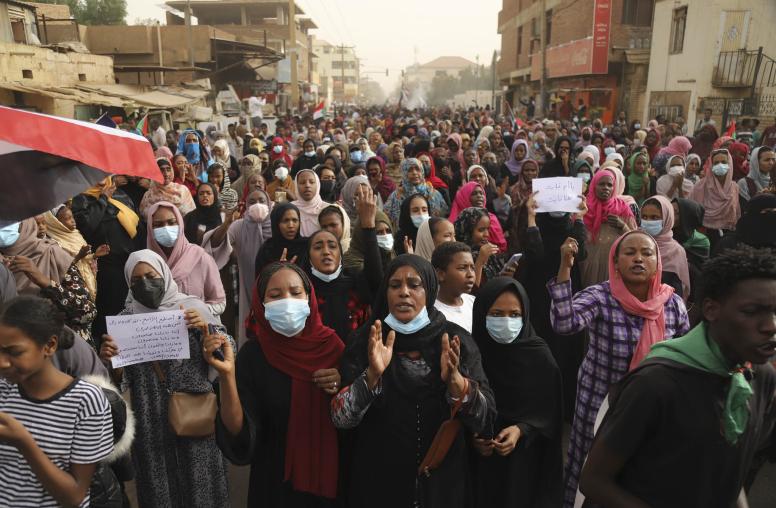From the Street to the Peace Table: Nonviolent Mobilization during Intrastate Peace Processes
Though nonviolent grassroots movements often help spur transitions to peace and democracy, they are rarely invited to play a role in formal peace processes. Yet these movements can and do influence the course and content of peace negotiations and contribute to the quality and durability of the resulting peace. This report examines the strategies they employ and provides insights for grassroots movements currently mobilizing for peace or change in Myanmar, South Sudan, Syria, Yemen, and elsewhere.

Summary
In countries caught up in armed civil conflict, social movements can use strategic nonviolent action to pressure armed belligerents to participate in peace dialogues and, under favorable circumstances, may themselves become key dialogue interlocutors influencing the content of peace talks. Six past peace processes, in Liberia, Basque Country/Spain, Kosovo, Aceh/Indonesia, Guatemala, and Nepal, shed light on the various types of grassroots movements that may emerge during an armed conflict and mobilize for peace, for maximal political change, or to advance the social claims of marginalized communities.
Even when nonviolent social movements are successful in winning direct participation in negotiations, however, that does not necessarily translate into sustainable agreements that address all conflict drivers, nor does it ensure that such agreements will be effectively implemented. Hence it is crucial for nonviolent activists to combine various modes of engagement and mobilization beyond claiming a place at the negotiation table, including forms of civil resistance organized from below.
For that reason, the report examines not only the types of social movements that may emerge during armed conflicts but also the different strategies those movements may adopt at different junctures to influence the peace process, including participation, representation, consultation, or mass protest action, and the various factors that empower or constrain individual activists in their attempts to gain a voice at the negotiation table or to apply pressure to negotiating parties.
The report concludes with key recommendations for social movements to prepare themselves for effective engagement during peace processes and for third-party mediators to ensure that their interventions “do no harm.” Once grassroots movements are considered to be stakeholders in conflicts and peacemaking agents in their own right, they can have greater influence over the sustainability of conflict transformation and societal change.
About the Report
Through an analysis of six peace processes in Liberia, Basque Country/Spain, Kosovo, Aceh/Indonesia, Guatemala, and Nepal, this report develops a typology of grassroots movements that emerge during armed conflicts and identifies the strategic choices made by those movements to influence peace processes. Research and interviews for this study were conducted while the author was a Jennings Randolph Senior Fellow at USIP.
About the Author
Véronique Dudouet is a senior advisor at the Berghof Foundation in Berlin, where she leads collaborative research on resistance and liberation movements, mediation in asymmetric conflicts, and inclusive postwar governance. She also advises peacebuilding actors on policy and capacity building and serves as academic advisor to the International Center on Nonviolent Conflict in Washington, D.C.


